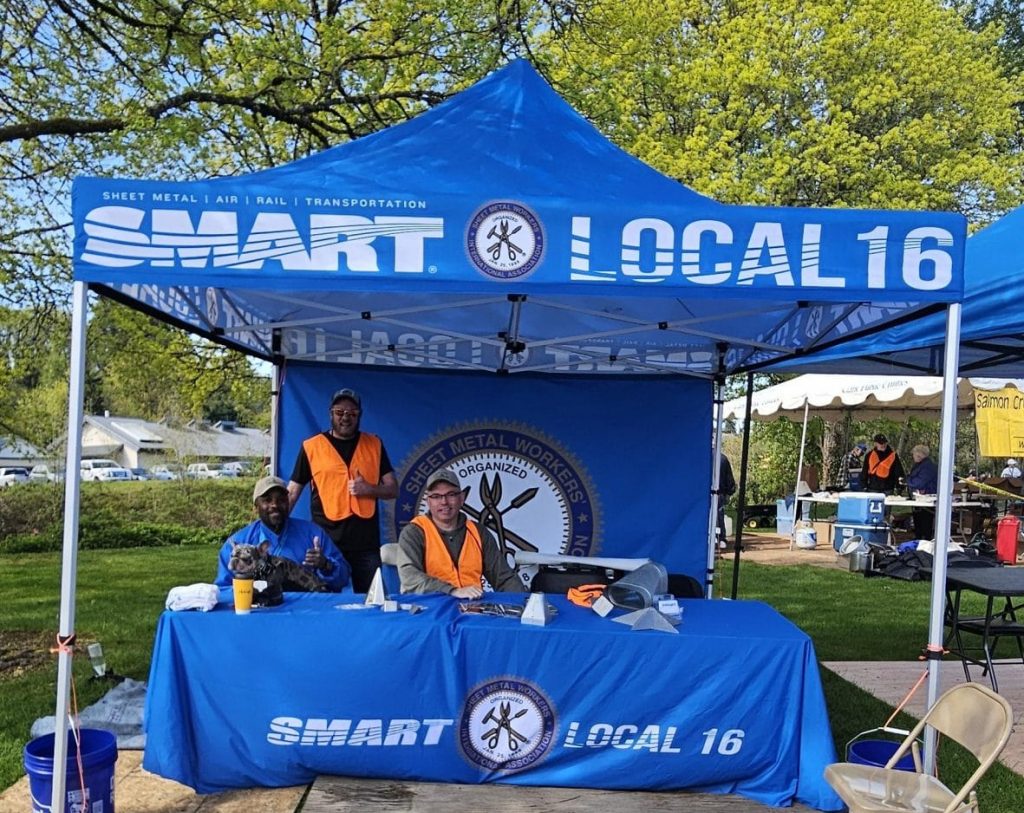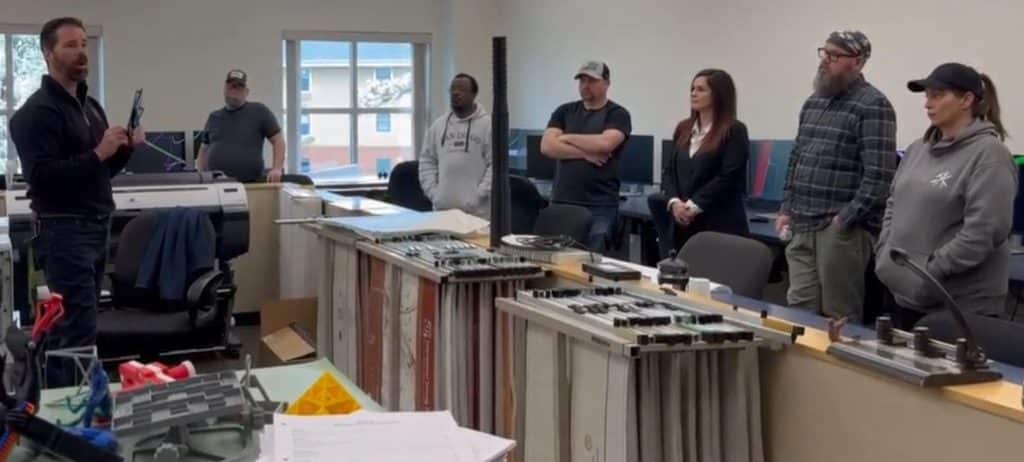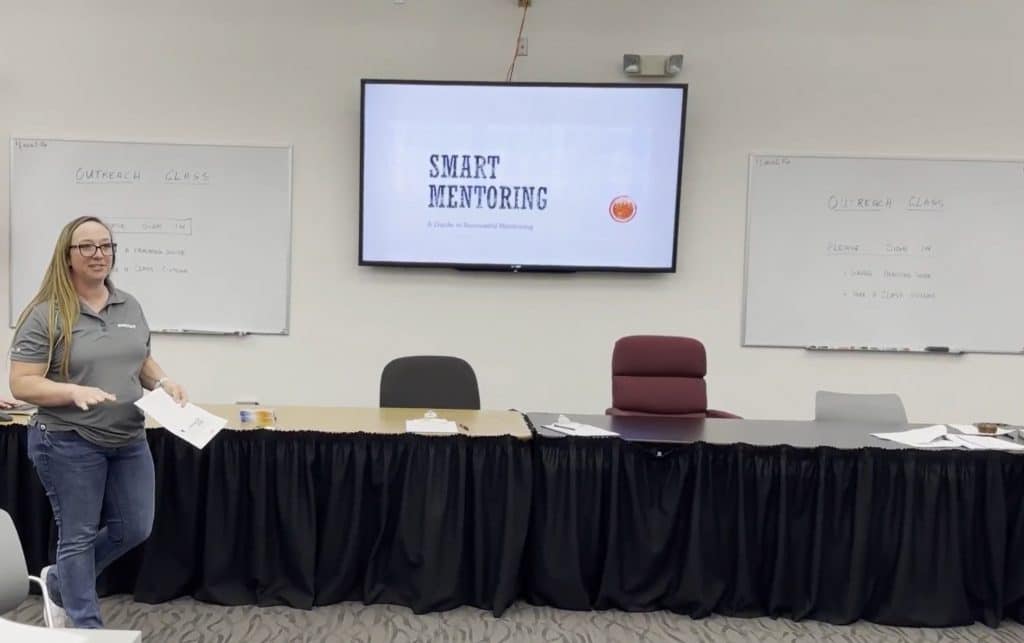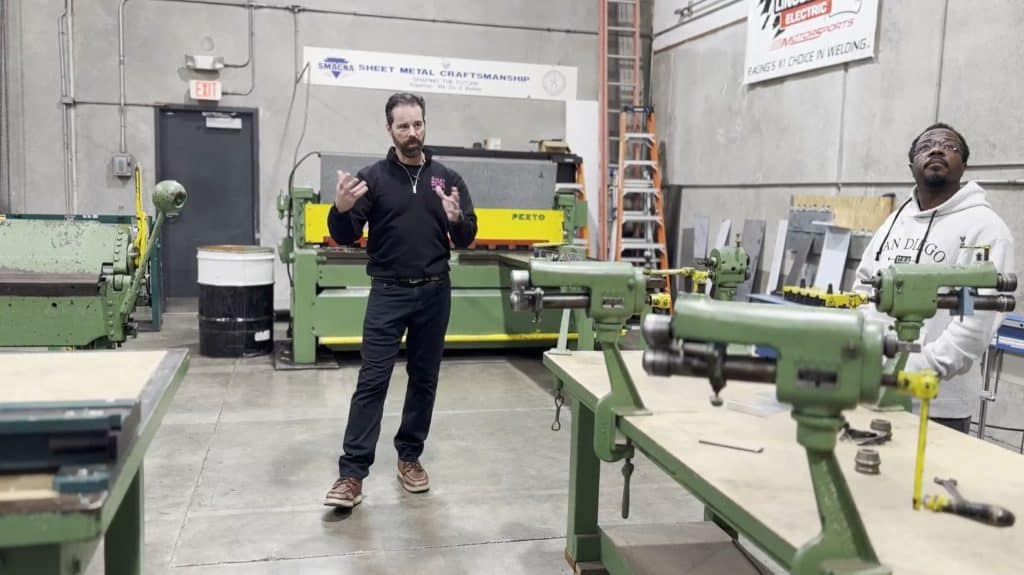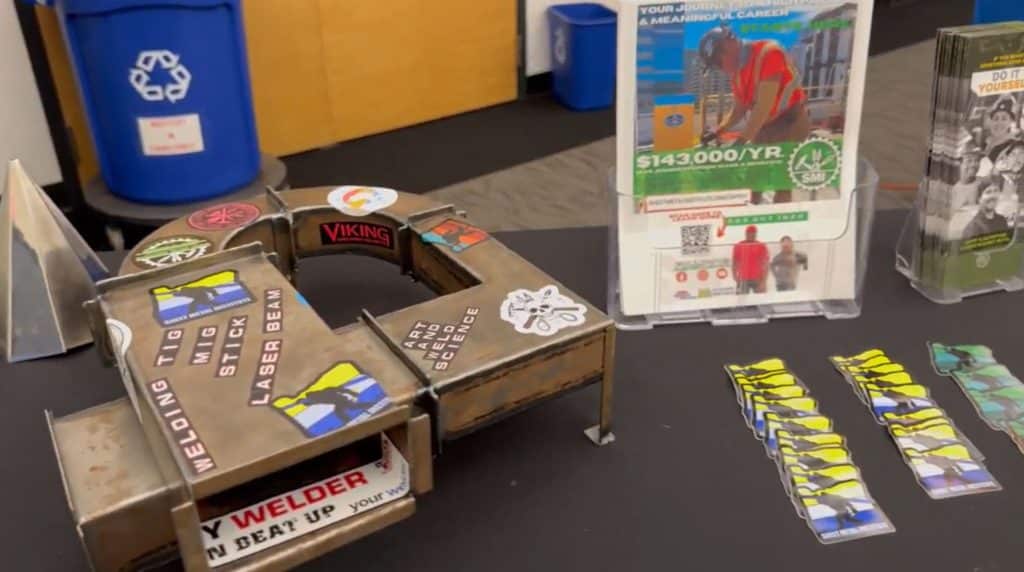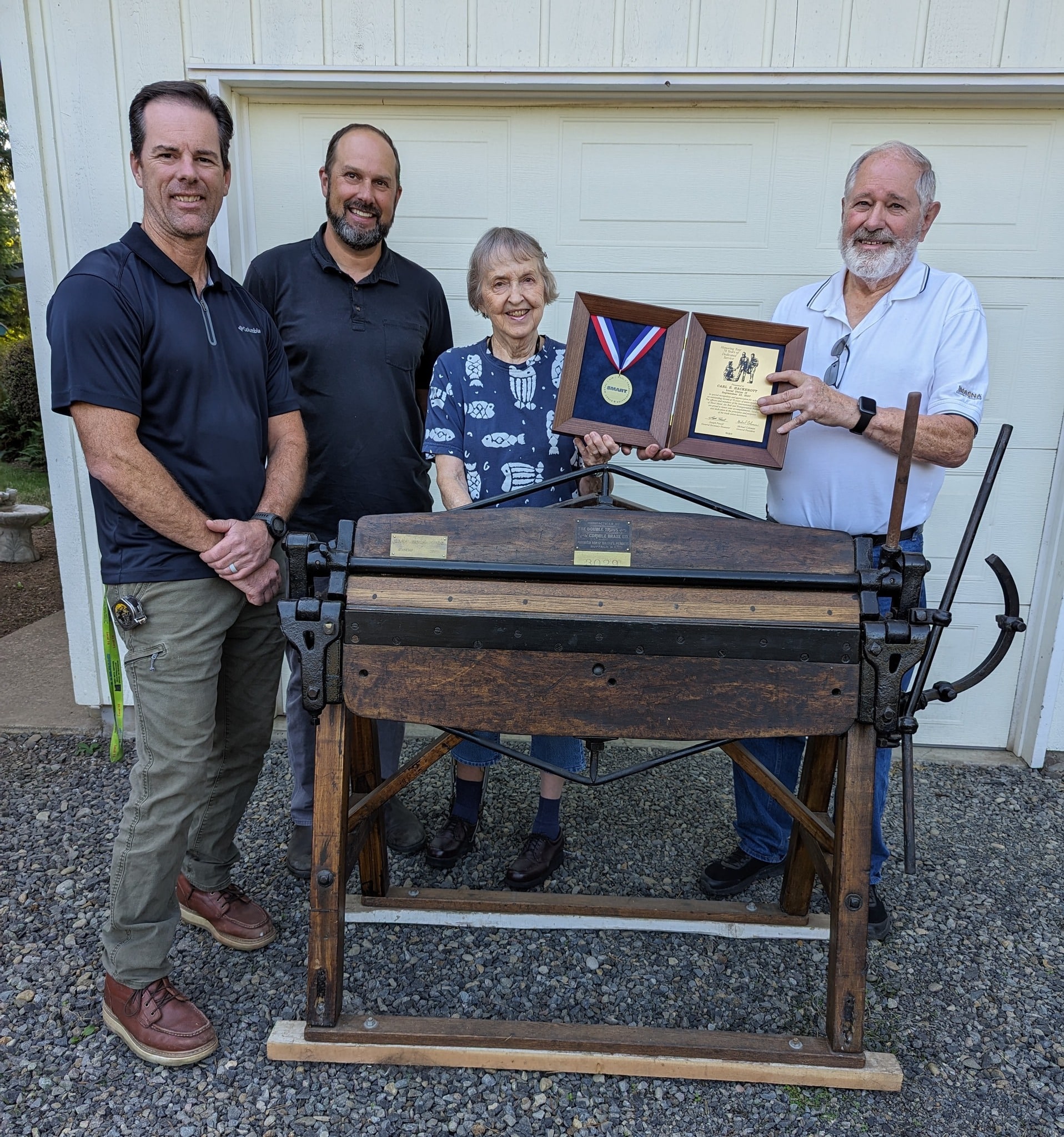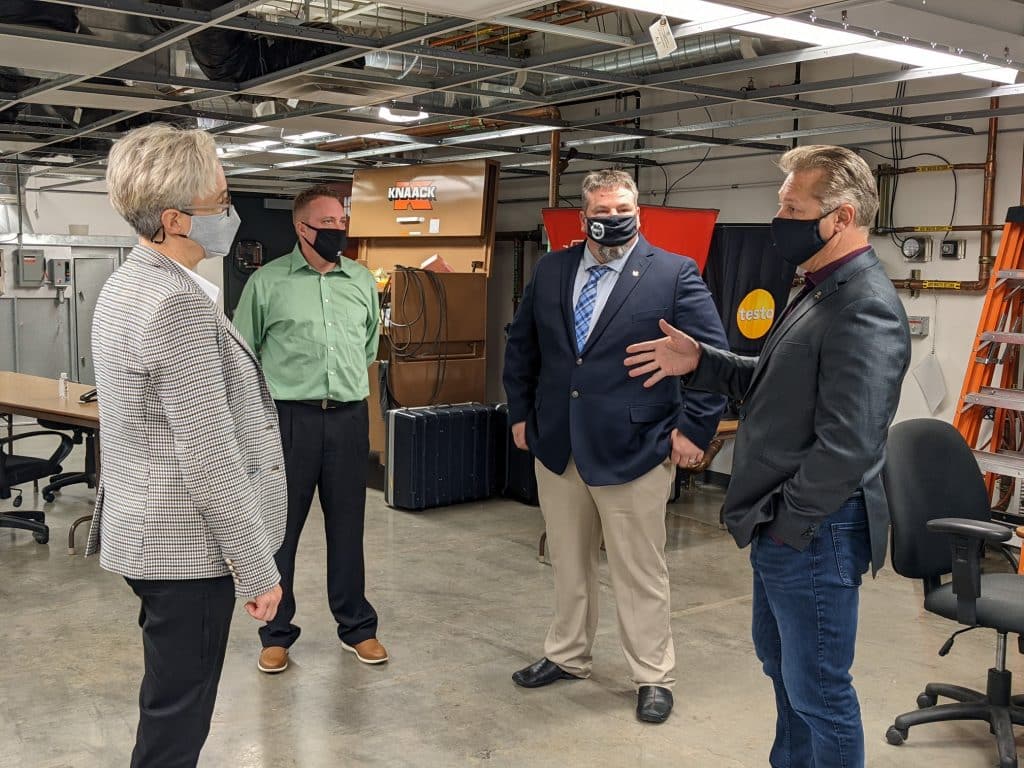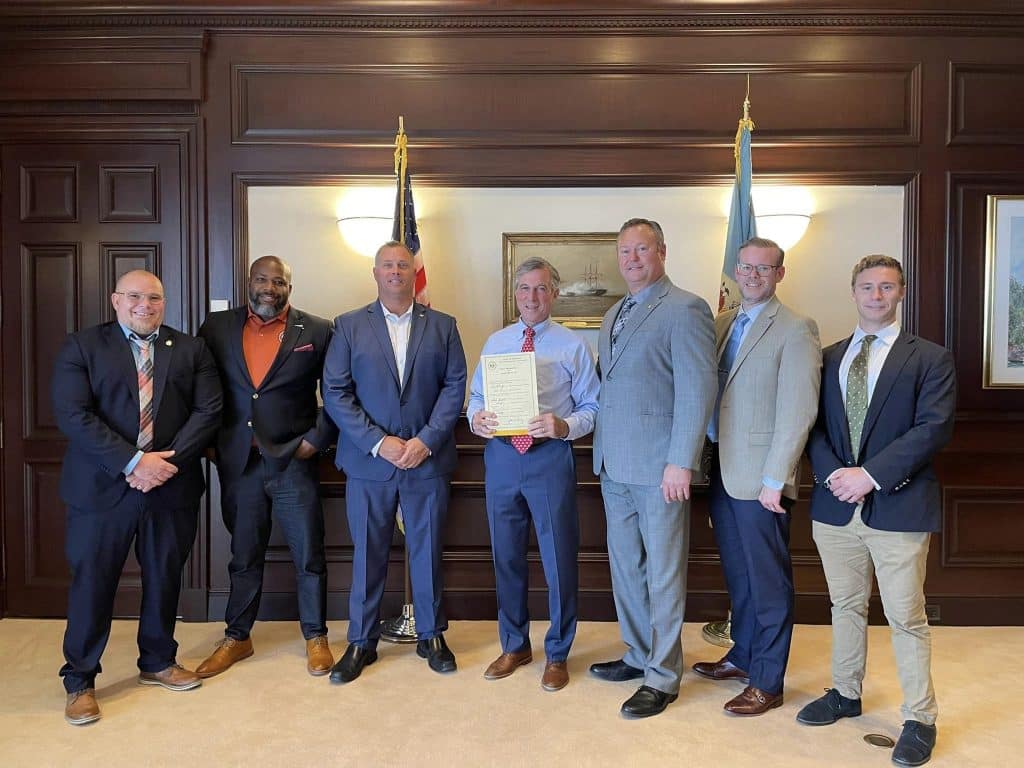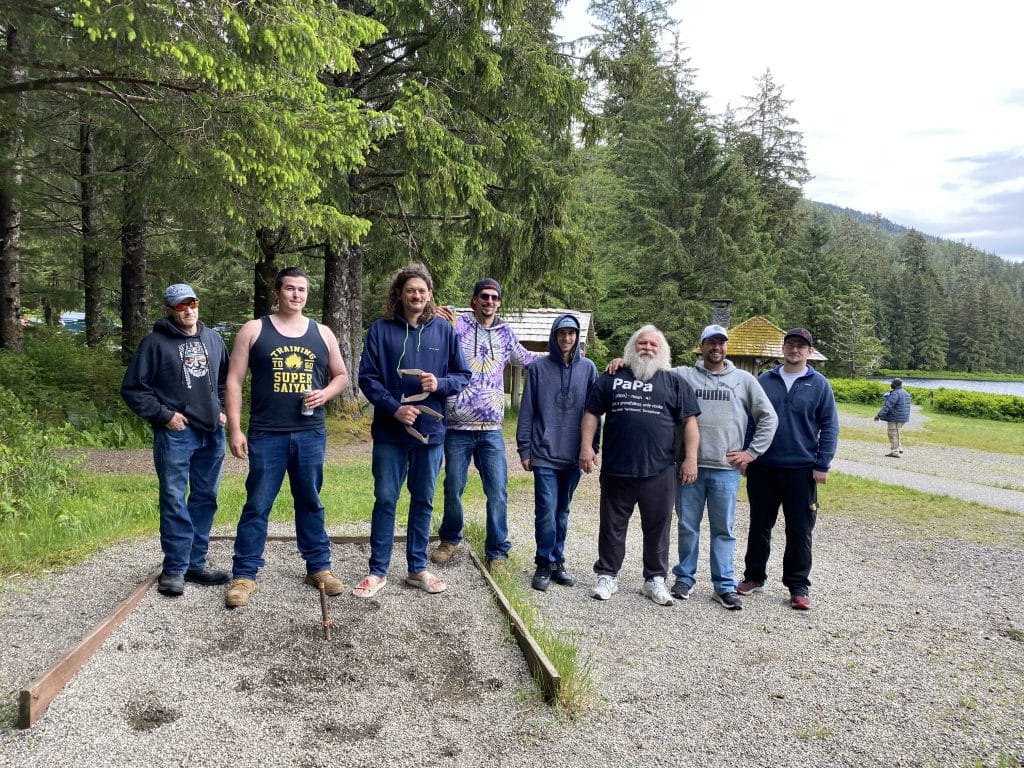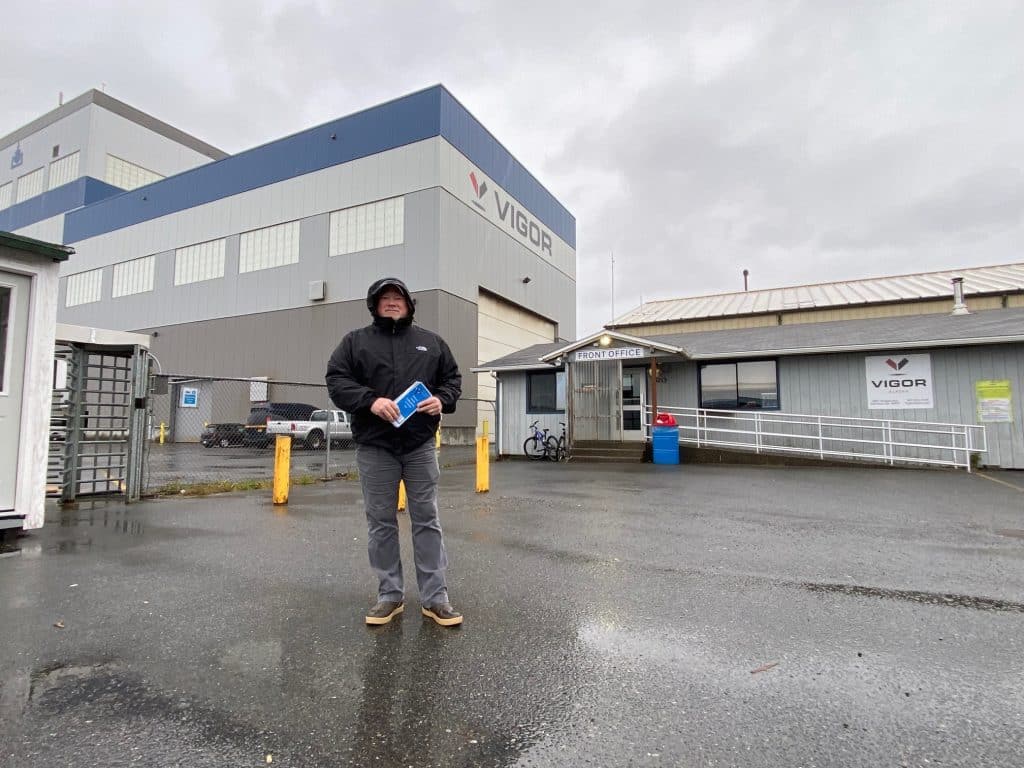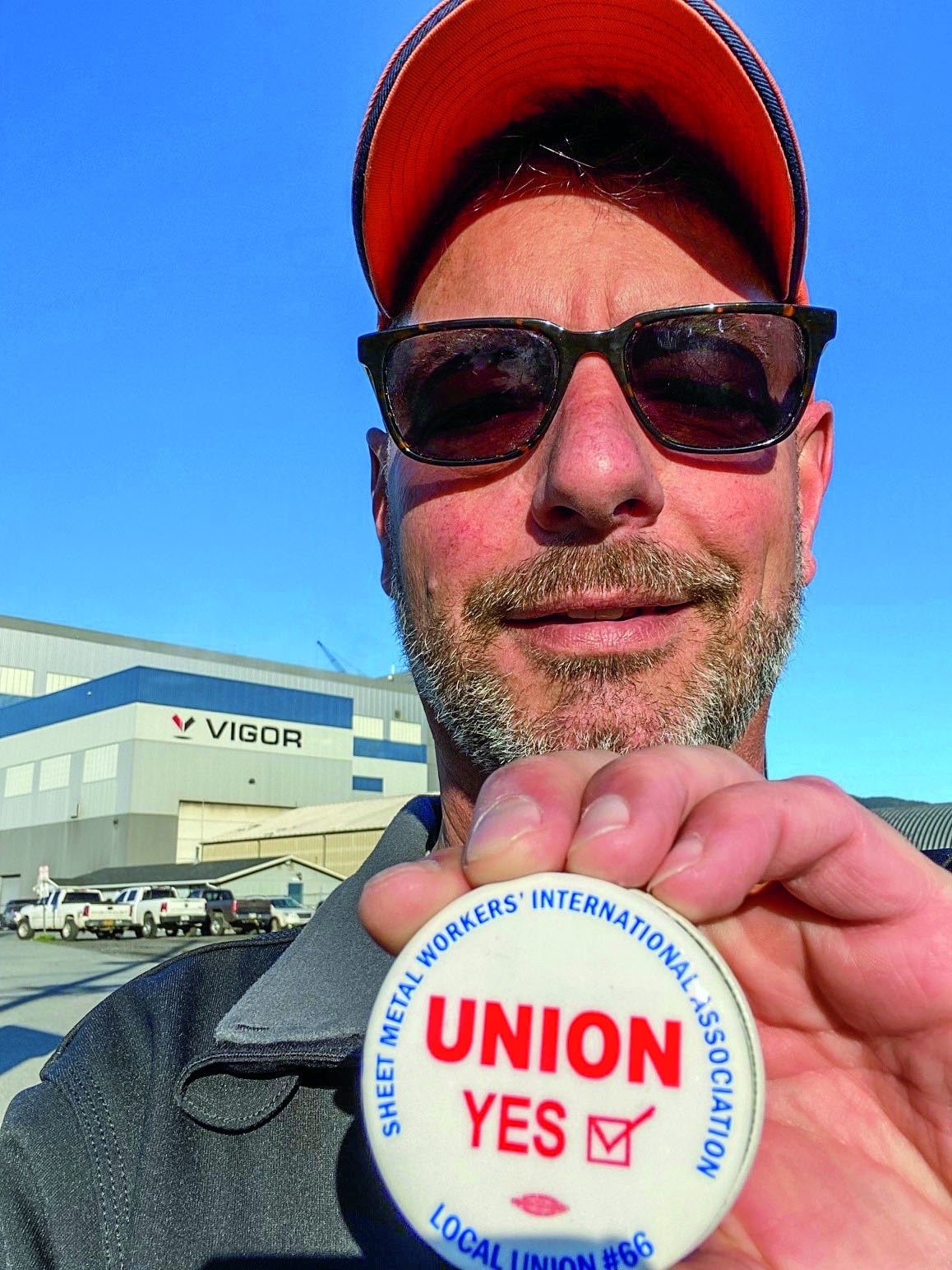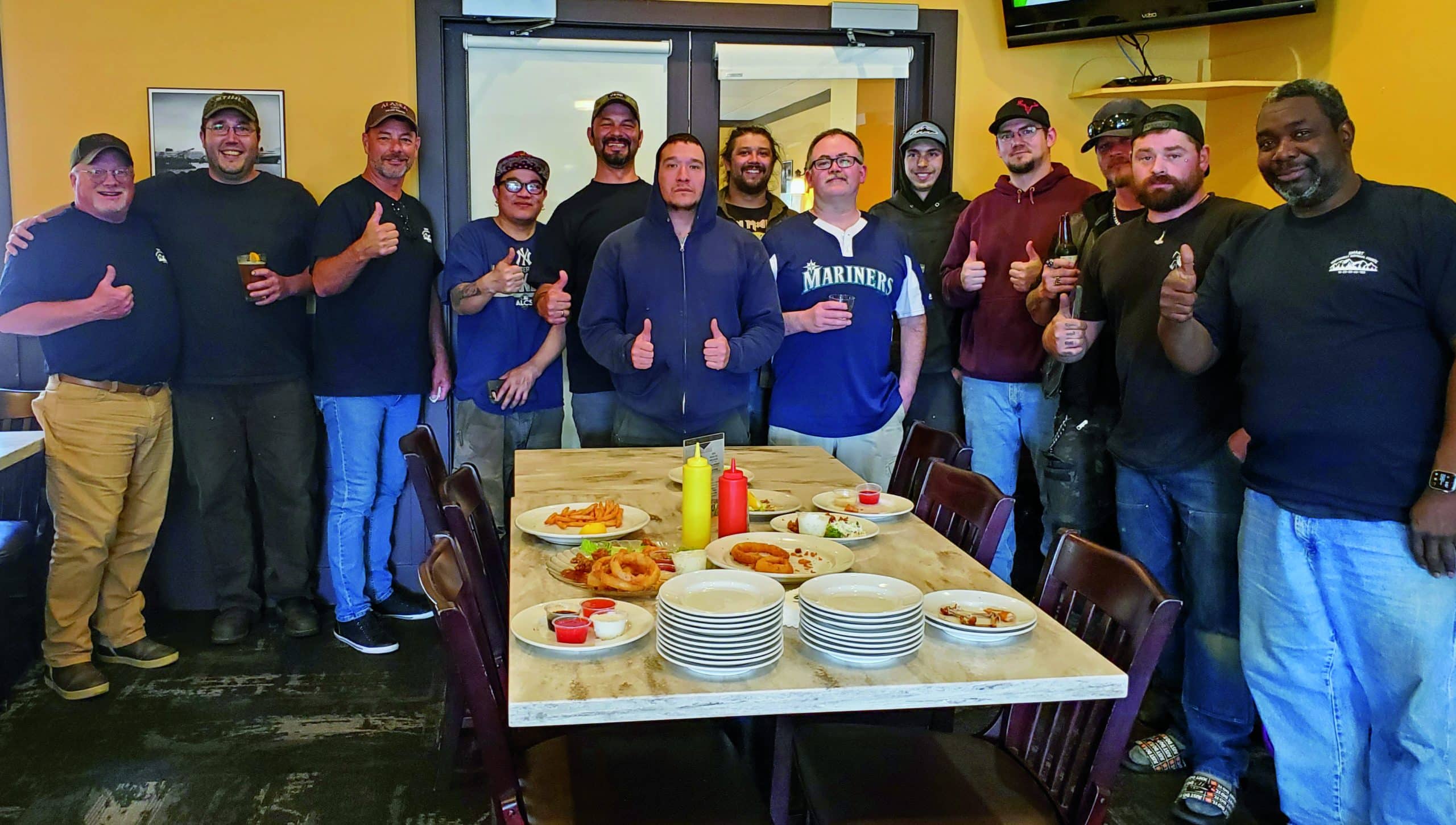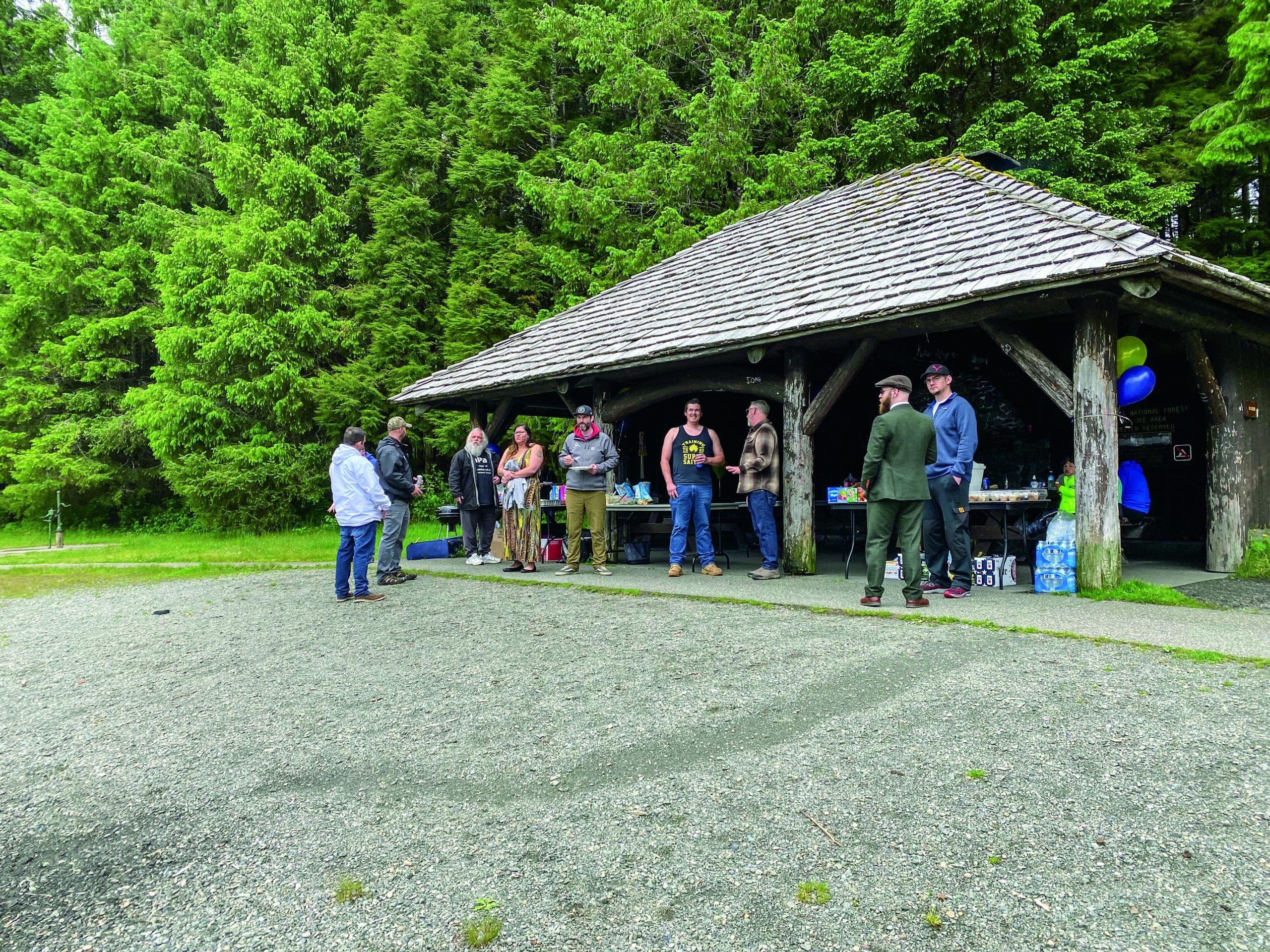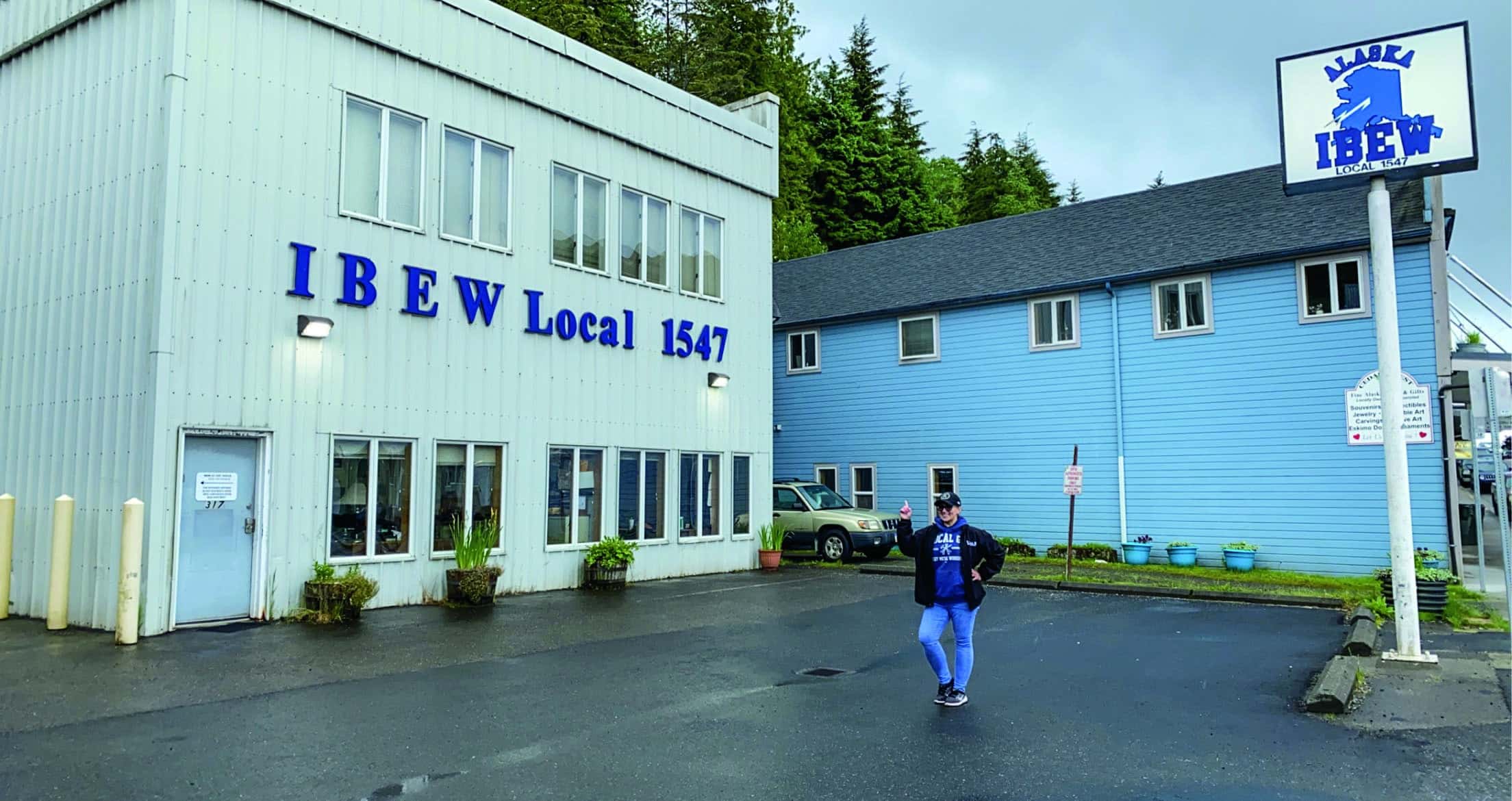Every year in April, the Klineline Kids Fishing Derby brings approximately 3,000 children, families and friends — around 10,000 people from across Southwest Washington and greater Portland, Oregon — to Salmon Creek Park/ Klineline Pond in Vancouver, Washington. Over two days, children of all backgrounds, including low-income and under-privileged kids and children with disabilities, learn about fishing and water safety, play outside and experience all that the natural world has to offer.

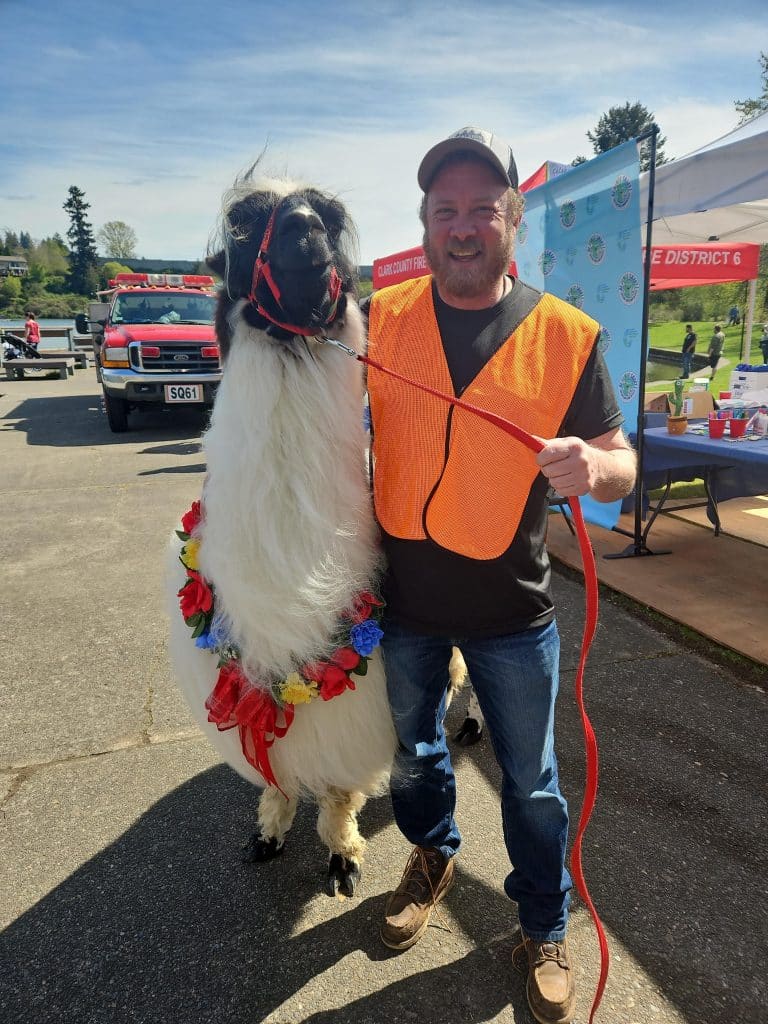
And for the last 15 years or so, SMART Local 16 and Northwest Regional Council (NWRC) members have played a crucial role in making the derby a success. That continued in 2024, with SMART volunteers doing their part to help kids across the region enjoy two days of fishing.
“I have been involved with the organization for close to 20 years, since my five children were under the age of 14,” said Local 16 Business Representative Dustin Hysmith. “They are all in their late twenties and early thirties. The event had such an effect on one of my children that he is now a commercial fisherman.”
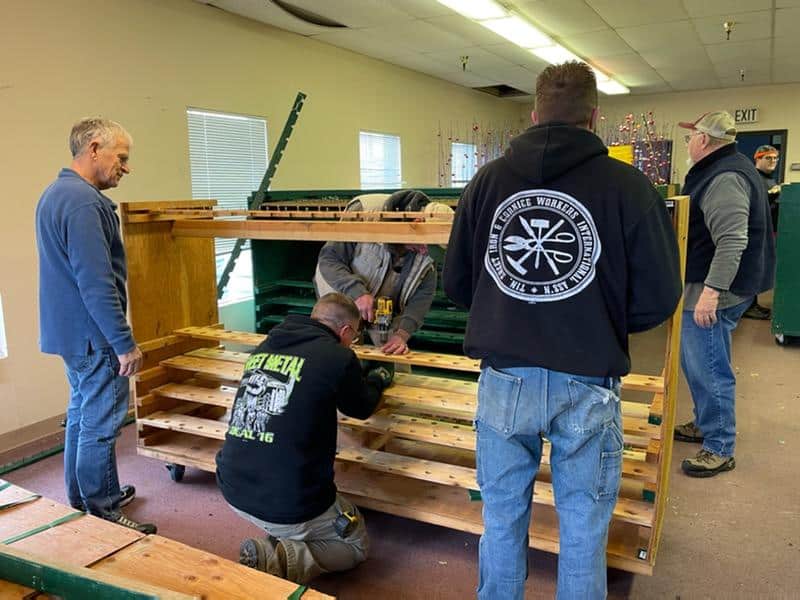
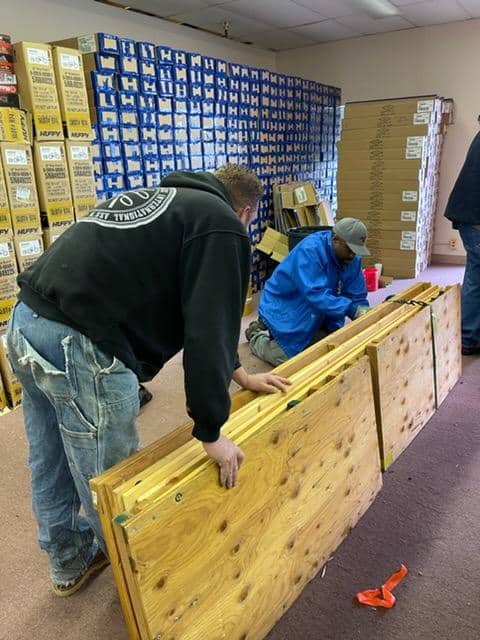
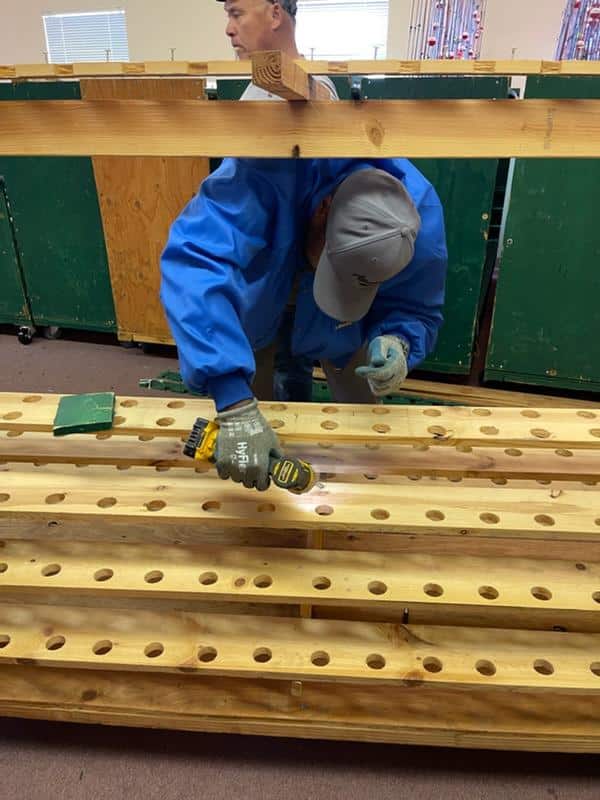
After taking part personally, Hysmith helped get Local 16 and other area building trades involved in the fishing derby, eventually expanding to include other members of the NWRC and SMART Local 66 (Seattle, Wash.). He has worked to bring industry partners into the festivities: During this year’s derby, signatory contractor JH Kelly signed on as a sponsor, and union printer Hollywood Impress donated 1,000 cookbooks and 3,450 three-by-five name and timeslot cards. In previous years, SMART contractors fabricated many of the fish cleaning stations, all part of facilitating the largest event of its kind in Washington state.
But it’s the SMART Army members who make the biggest difference.
“Local 16 members have been pivotal in stringing the more than 3,000 fishing poles every year, putting together the 20 fishing racks, helping with setup and tear-down, staffing our outreach booth and — most popular — helping the kids catch fish,” Hysmith explained.
SMART members’ display of service and solidarity is rewarded every year when the thousands of fishing derby attendees get to experience the various activities and prizes available throughout the weekend. Friday is special needs day, Hysmith said, open to all those with a disability, regardless of age. Saturday is for all kids ages 5-14, with a $5 entry fee granting participants a free fishing pole, a T-shirt, the chance to catch two fish, entry in a drawing to win a bicycle or scooter, a goodie bag and much more. Plus, there’s button making, building activities, face painting, free ice cream and shaved ice — and no one’s turning any kids away, Hysmith added.

“The largest fish of the hour gets a tackle box full of lures, fishing supplies and a trophy. Second and third place get trophies. The smallest fish of the hour gets a coupon to Papa Murphy’s Pizza for a free pizza, because the fish is not big enough to feed the family,” he said.
The critical part SMART members play in the Klineline Kids Fishing Derby demonstrates for all attendees that union members are part of the fabric of communities across the country, and it shows that solidarity is more than just a word for union workers — it’s a principle. As a bonus, the Local 16 outreach booth stands throughout both days to give interested parents and guardians more information about our union and our trade.
Great work, brothers and sisters!
